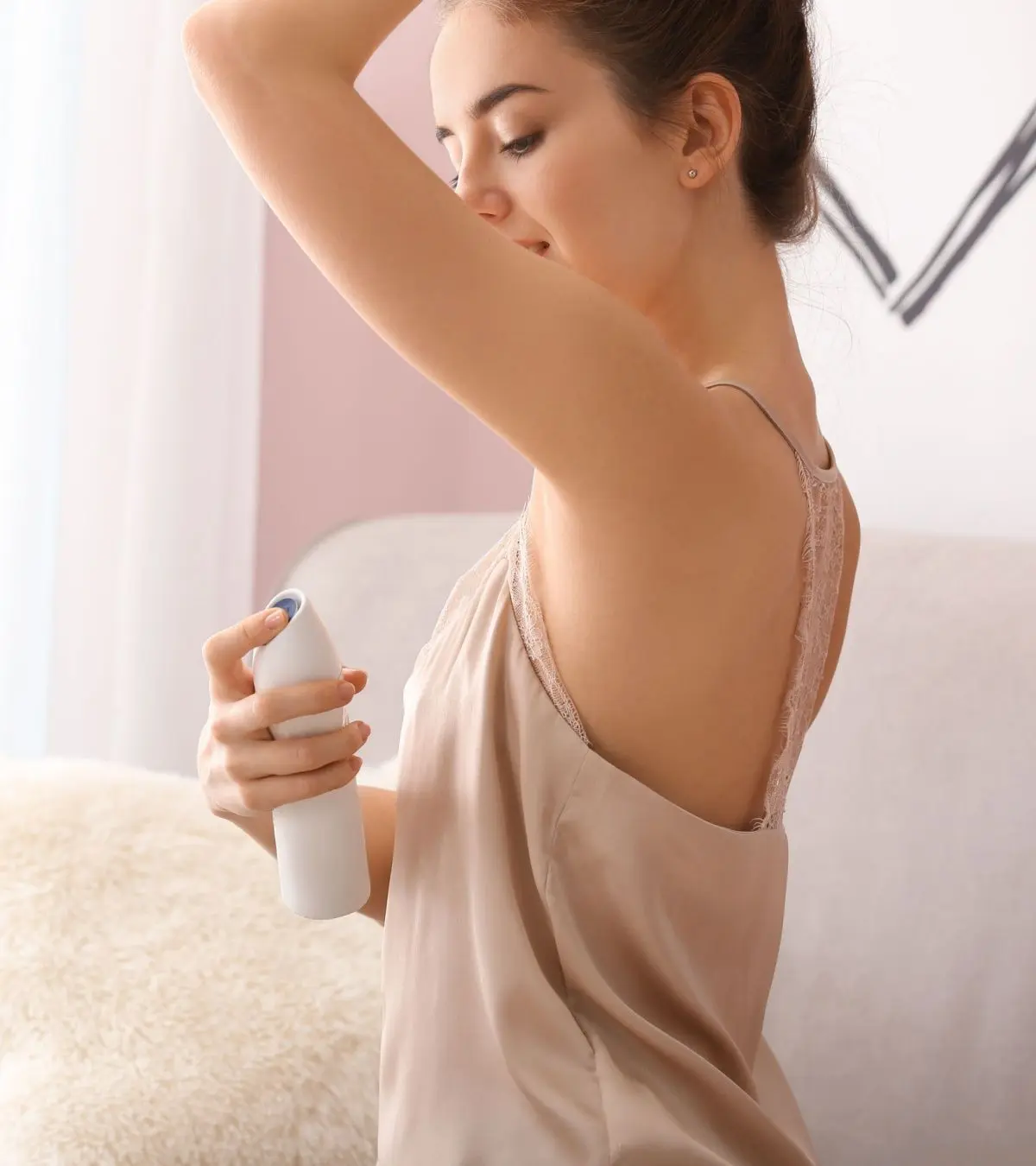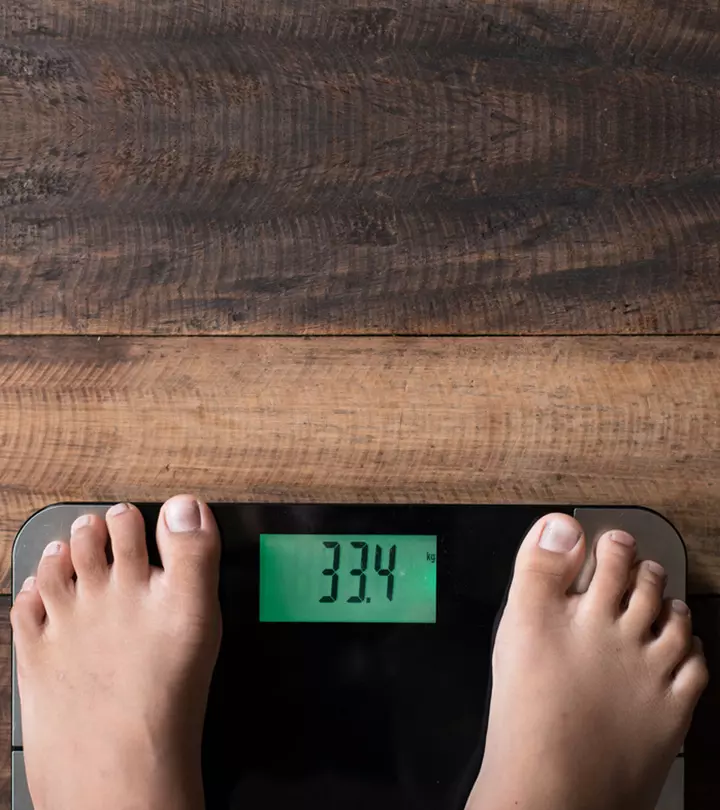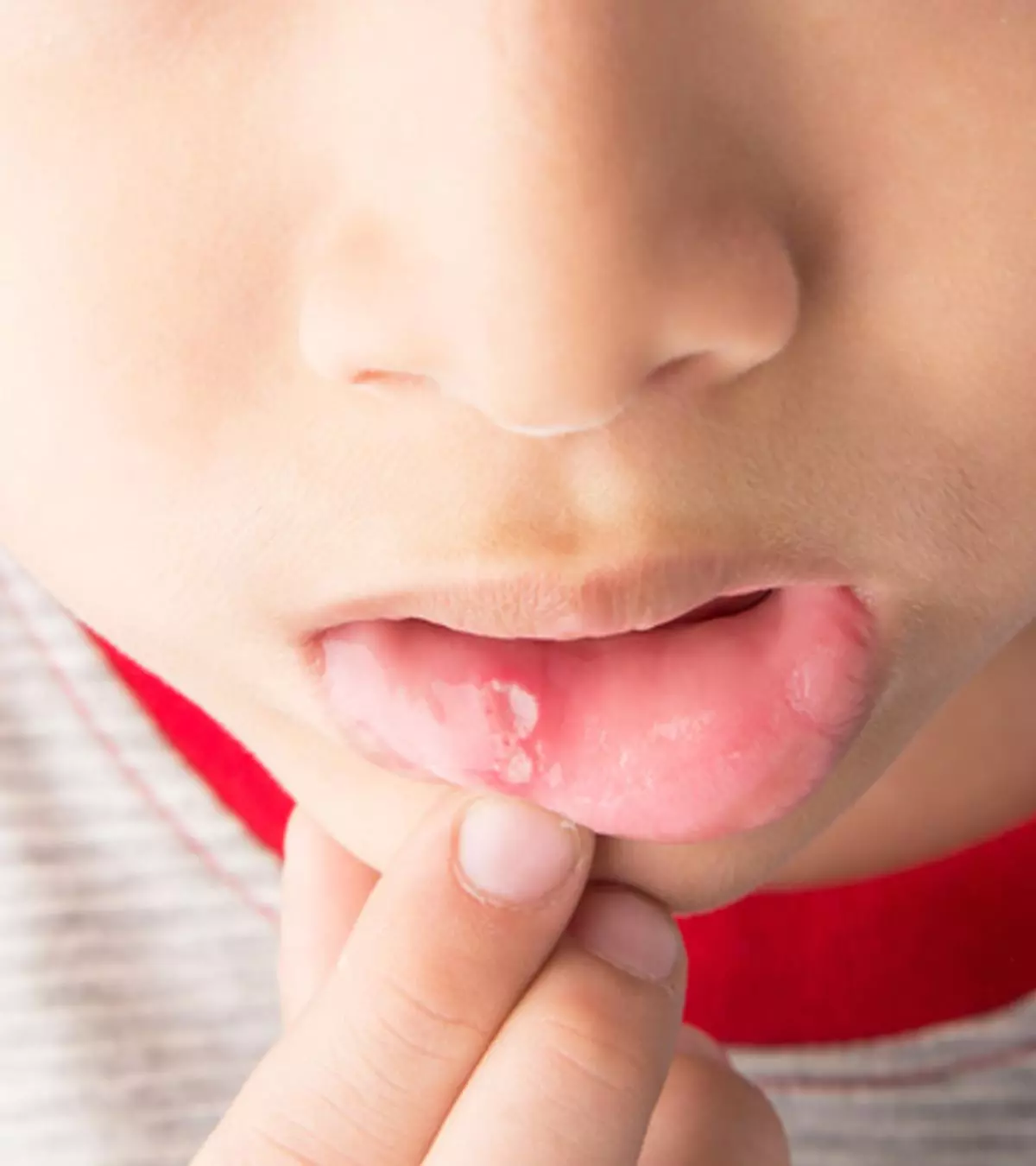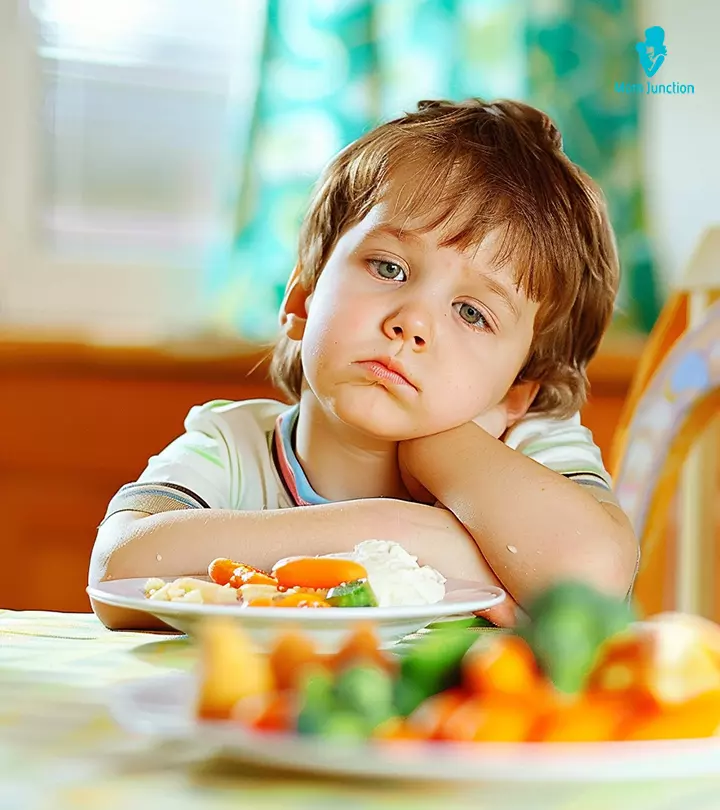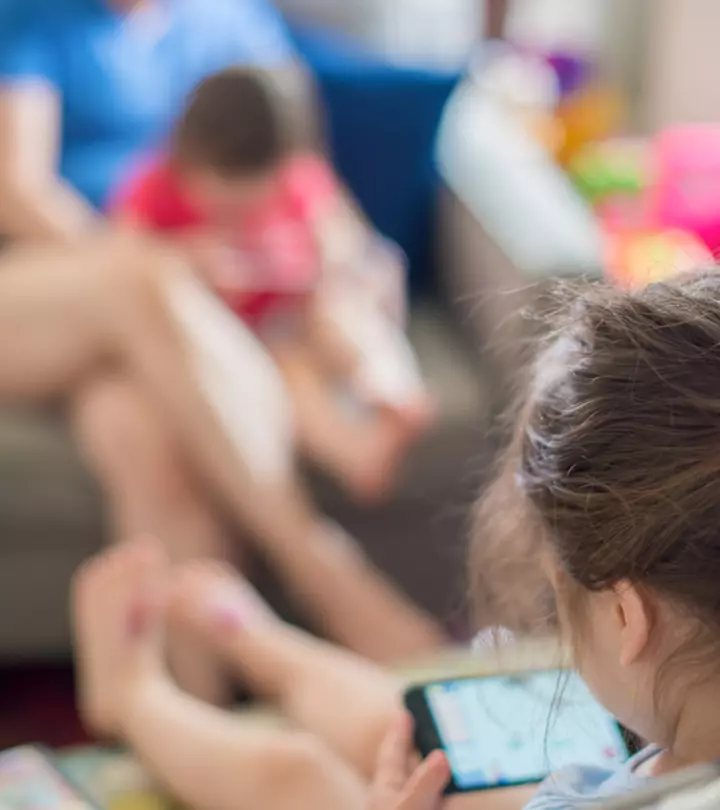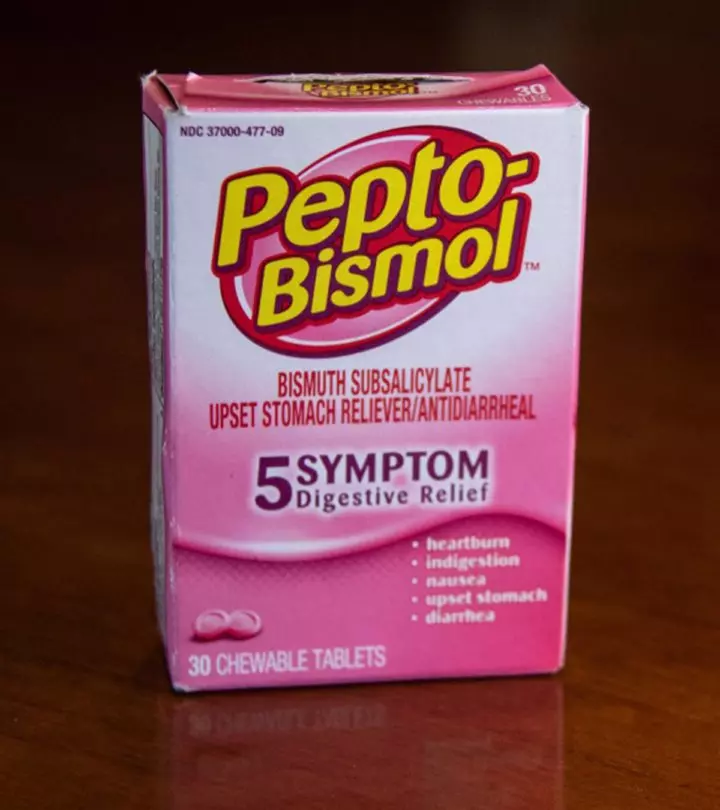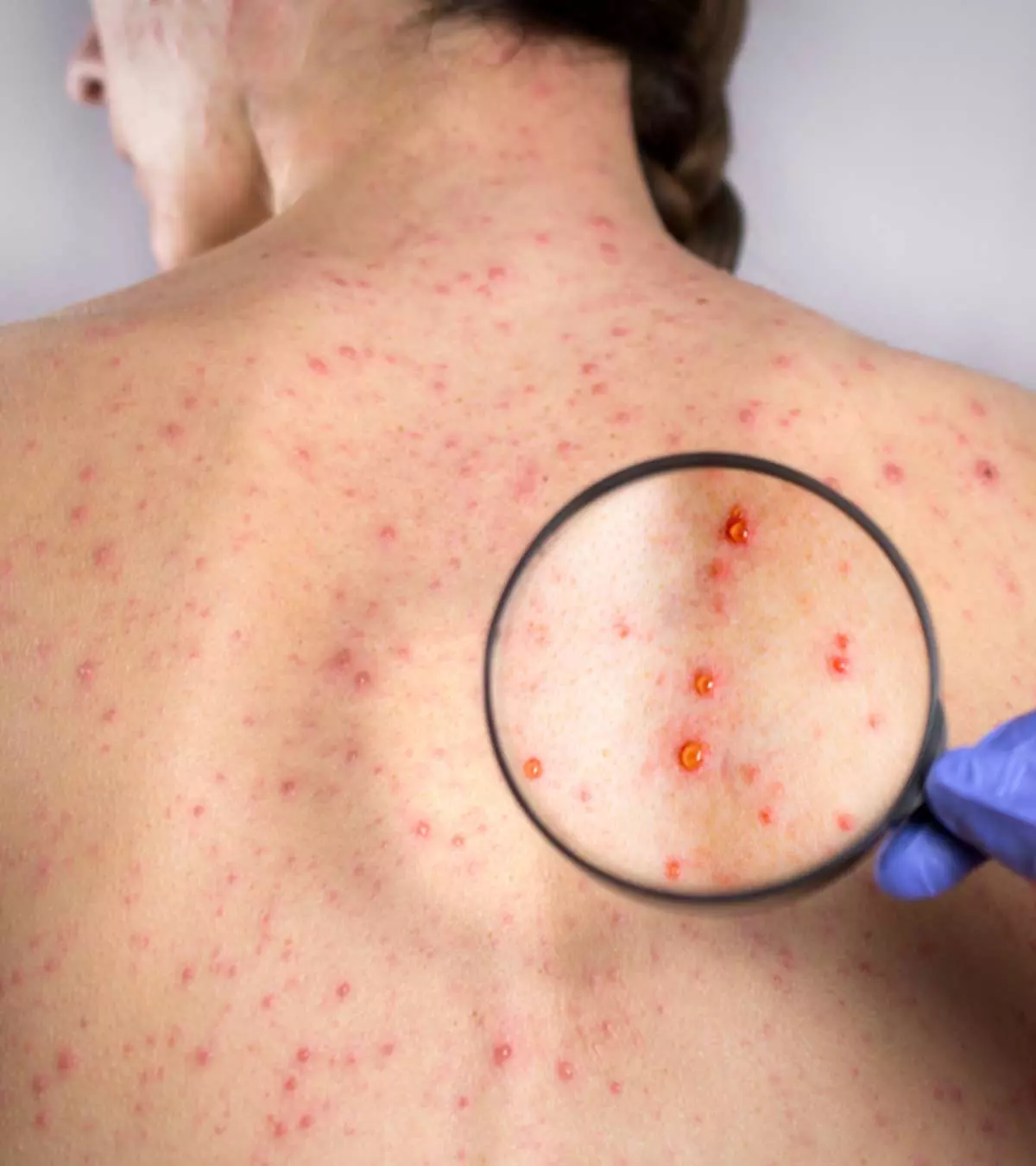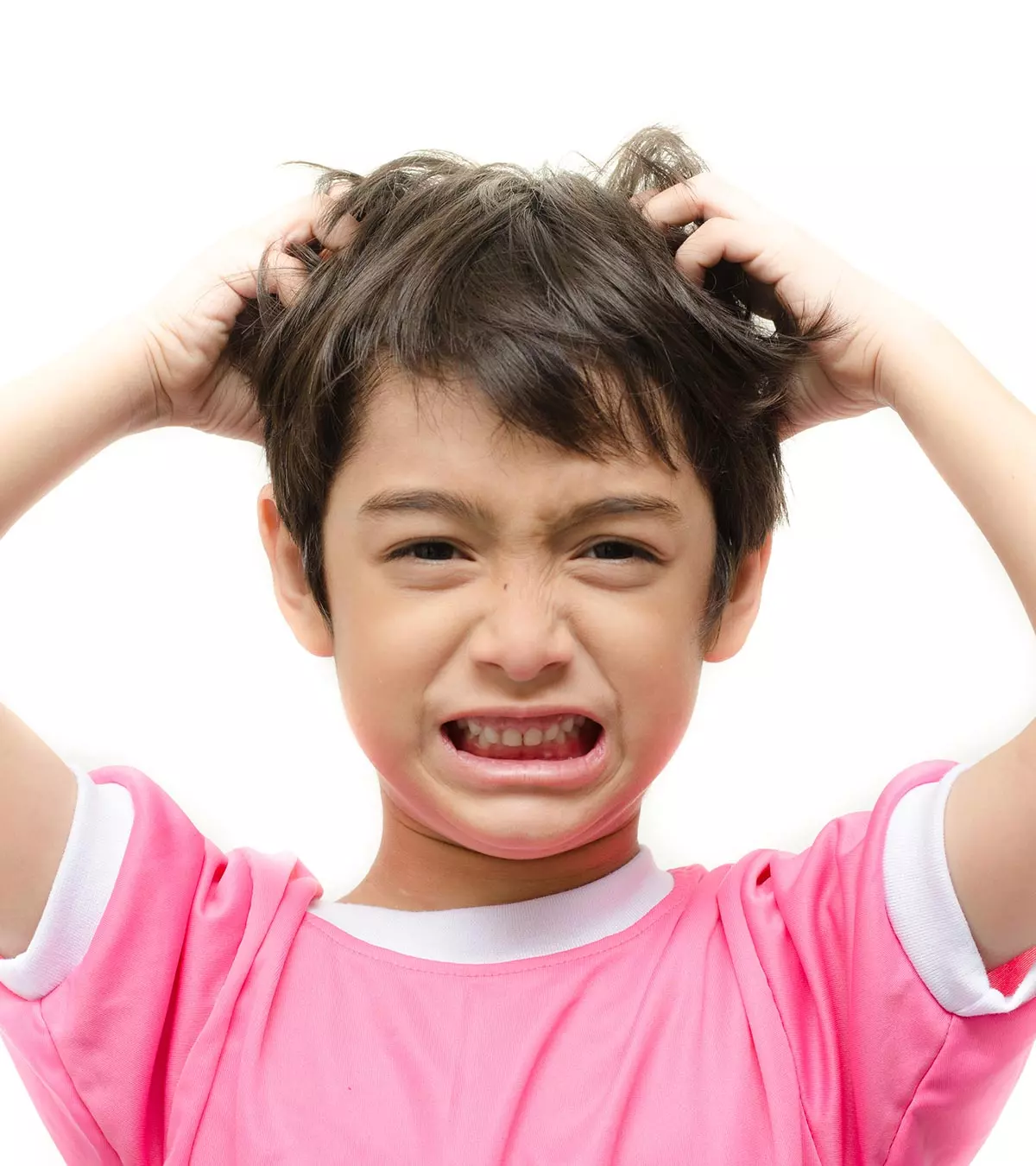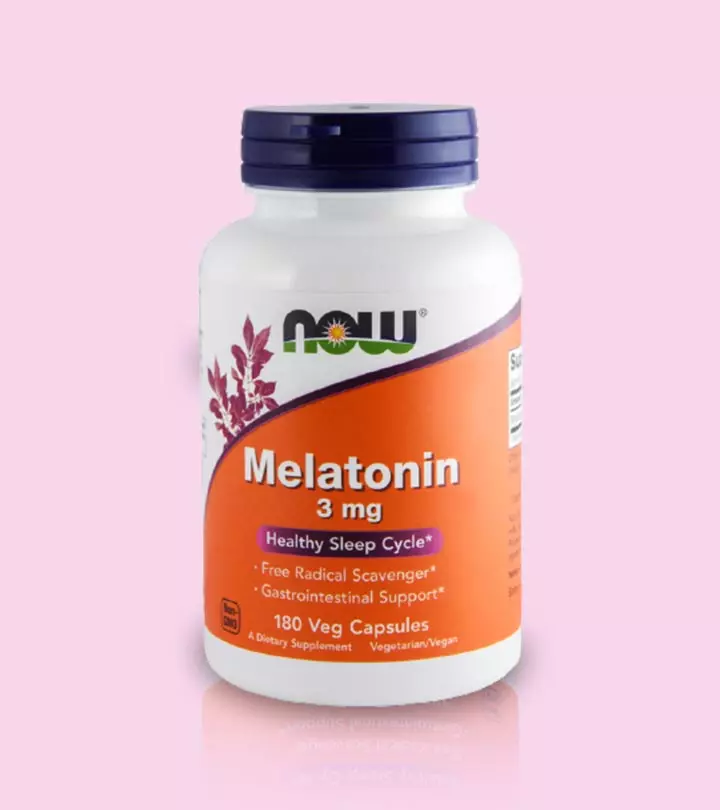
Image: Shutterstock
Melatonin for kids may be effective as a short-term treatment option for sleep disorders. It may be prescribed for autism spectrum disorder (ASD) in adolescents (1). Melatonin is a hormone made by your brain in response to darkness. It promotes calmness and relaxation and helps in the maintenance of circadian rhythm and sleep pattern regulation.
Synthetically produced melatonin supplements may be used in conditions such as jet lag, some sleep disorders in children, and anxiety before and after surgery (2). This post talks about the safety of using melatonin in children, its side effects, and precautions.
Key Pointers
- Melatonin is prescribed for children with sleep disorders.
- However, some side effects of this medication include headache, confusion, increased heart rate, etc.
- If your child has sleep problems and has been prescribed this medication, inform the doctor about your child’s medications and illnesses.
- Alternatively, you may maintain good sleep hygiene for your child and include foods containing melatonin, such as eggs, milk, and cereals.
Is Melatonin Safe For Children?

Image: Shutterstock
The short-term use of melatonin supplements is usually considered safe. Nevertheless, their effects on children have not been studied extensively. Studies on the long-term effects of melatonin use in children are not adequate as well. Additionally, melatonin being a hormone itself may affect hormonal development such as puberty and menstruation. However, evidence is not confirmatory (2). Hence, a child should have melatonin only when prescribed by a doctor.
How Does Melatonin Work?
Melatonin is a neurohormone mainly secreted from the pineal gland in the brain.
It regulates circadian rhythms (the 24-hour internal clock in our brain that regulates the sleep-wake cycle, neuroendocrine or hormone release rhythms, and body temperature cycles in response to the light changes in our environment). Synthetic melatonin mimics the effects of the body’s melatonin. Some features of melatonin include (3):
- Melatonin synthesis and secretion increase after sundown, peak around the middle of the night, and gradually decrease after that.
- Plasma levels of melatonin are low during the day.
- The amount of melatonin secreted in the body also varies with age. Melatonin concentration starts increasing after three months of age and attains its highest peak between four to seven years of age and then declines progressively.
 Be watchful
Be watchfulWhat Are The Uses Of Melatonin In Children?
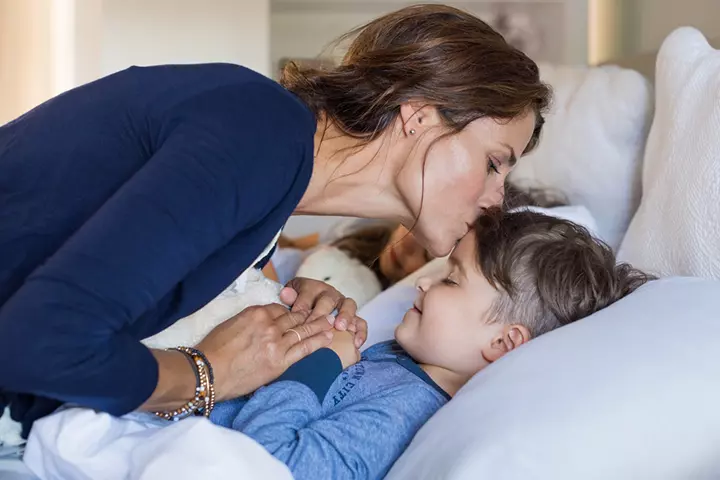
Image: Shutterstock
Melatonin plays an important role in sleep-wake cycles, but its supplements should not be used as sleeping pills. Melatonin supplements are used (4):
- For short-term therapy to help children establish good bedtime routines. An anonymous mother of two kids who used melatonin supplements for both her sons with autism says, “If things are particularly bad that night, I ask Monkey (her son) if he would like a “nighttime vitamin” (melatonin). He usually says yes because he’s tired and is too afraid to fall asleep on his own. Melatonin typically takes effect about 30 minutes after he’s taken it. Just so you know, we don’t give melatonin every night, saving it only for when the boys need it. I hope that neither of them will ever have a long-term reliance on it in order to fall asleep. About 2 years ago, we used melatonin and other supplements prescribed by our naturopathic physician. Her assistance helped us get through some fairly difficult times with the boys’ sleep habits. They are much better now and no longer need such interventions every night, which we are very thankful for (i).”
- To help children reset sleep schedules after long vacations or other interruptions.
- Under medical supervision in children with neurodevelopmental disorders such as autism or attention-deficit/hyperactivity disorder (ADHD).
 Quick fact
Quick factWhat Is The Dosage Of Melatonin For Children?
Melatonin supplements are available over the counter but it is advisable to consult a pediatrician before giving them to your child to avoid dosing errors. Melatonin is not usually given to children below three years of age.
Below are dosage suggestions by the American Academy of Pediatrics (4).
- Most children respond to a low dose of 0.5mg to 1mg given 30 to 90 minutes before bedtime
- Maximum dose ranges from 3mg to 6mg
Synthetic melatonin acts as a (5):
- Chronobiotic agent (shifts the body’s circadian rhythm to cause sleep earlier)
- Hypnotic agent (sleep-inducer)
What Are The Potential Side Effects Of Melatonin?

Image: Shutterstock
The side effects of synthetic melatonin may include the following (2) (6).
- Drowsiness
- Headache
- Altered sleep patterns
- Bad dreams
- Confusion
- Bedwetting
- Increased heart rate
- Low body temperature
- Getting red in the face
- Stomach cramps
- Itching
What Precautions Should You Take When Using Melatonin In Children?

Image: Shutterstock
Parents and caregivers should take certain precautions when giving melatonin to children (7).
- Inform your healthcare provider about other medications your child is taking or has taken recently. This will help avoid drug interactions.
- Melatonin products are available as over-the-counter medications in various forms such as tablets, capsules, and gummies. Make sure you check the labels as all these forms deliver different doses.
- Preferably choose products that have been certified by a third party, such as Consumer Lab, NSF International, and US Pharmacopeia. This provides surety about the ingredients and their quantity in the products.
- Keep melatonin out of children’s reach to avoid accidental overdosing.
Overuse of over-the-counter melatonin products may cause adverse reactions in children. CDC reports that pediatric hospitalizations of children under five years increased with an increase in the rate of melatonin ingestion between 2012 and 2021. As inferred from the graph, there is an annual increase in cases. The majority of melatonin ingestions were unintentional. The increased risk of exposure to children can be attributed to increased sales, availability, and widespread use of over-the-counter melatonin.

Rate of pediatric melatonin ingestions reported to poison control centers, United States
Source: Pediatric Melatonin Ingestions — United States, 2012–2021; CDCAvoid using melatonin if your child is younger than three years or has insomnia or problem sleeping due to:
- Situations that caused anxiety
- A short-term illness such as an ear infection
- An underlying disorder such as sleep apnea or restless leg syndrome
 Things to know
Things to knowWhat Are The Alternatives To Melatonin Supplements For Children?

Image: Shutterstock
According to a US Centers for Disease Control and Prevention (US CDC) survey, 57.8% of middle school children do not sleep adequately, with nearly 12% sleeping for under six hours daily. However, it’s important to understand that medication may not always be the answer. You may include some foods containing melatonin in your child’s diet instead of using sleep supplements for kids (8).
- Fish
- Eggs
- Milk
- Nuts such as pistachio
- Cereals such as unpolished rice, wheat, barley, and oats
- Corn
- Fruits such as grapes, cherry, and strawberry
- Vegetables such as tomato and pepper
- Mushrooms
Frequently Asked Questions
1. What happens if my kid has too much melatonin?
According to The Centers For Disease Control And Prevention (CDC), 80% of melatonin overdose cases are relatively harmless. However, if you become aware of any accidental or intentional melatonin overdose, you should contact the medical care facility (9).
2. Can I give melatonin to my kid every night?
The long-term use of melatonin is not studied in children. However, you can visit the doctor to weigh the risks and benefits and prescribe your child a safe dose and duration of melatonin.
3. Does melatonin cause aggression?
Some researchers have established a direct link between melatonin and increased aggression and impulsiveness in human beings. You can consult your doctor if you notice any behavioral changes in your child due to melatonin.
4. How long will melatonin last in my child?
Melatonin, an aid to help with sleep disorders in children, can help your little one dose for up to five hours. However, the time may vary according to the formulation, dosage, and the individual taking it (11).
5. What happens if my child consumes melatonin and doesn’t go to sleep?
Melatonin should be the last resort to treat insomnia in children. However, overusing it or not going to sleep after taking it may lead to drowsiness, headaches, and decreased work efficiency, thereby worsening the condition (12).
Try managing your child’s sleep problems by adopting good sleep hygiene. Ensure minimum napping, limited screen time, a conducive ambient sleep environment (dark and quiet), dinner at least two hours before bedtime, and a consistent sleep schedule for kids (9). The OTC melatonin products may vary in content. Consult a pediatrician to know the correct dose and discuss alternate non-medicine approaches to help your child sleep better.
Infographic: Foods That Boost Melatonin Levels In The Body
Melatonin supplements may help resolve sleep issues in children. However, you may also improve their melatonin levels by including certain foods in their diet. The infographic below enlists some melatonin-boosting foods for children.

Illustration: Momjunction Design Team
Illustration: Melatonin For Kids: Is It safe Uses Dosage & Precautions
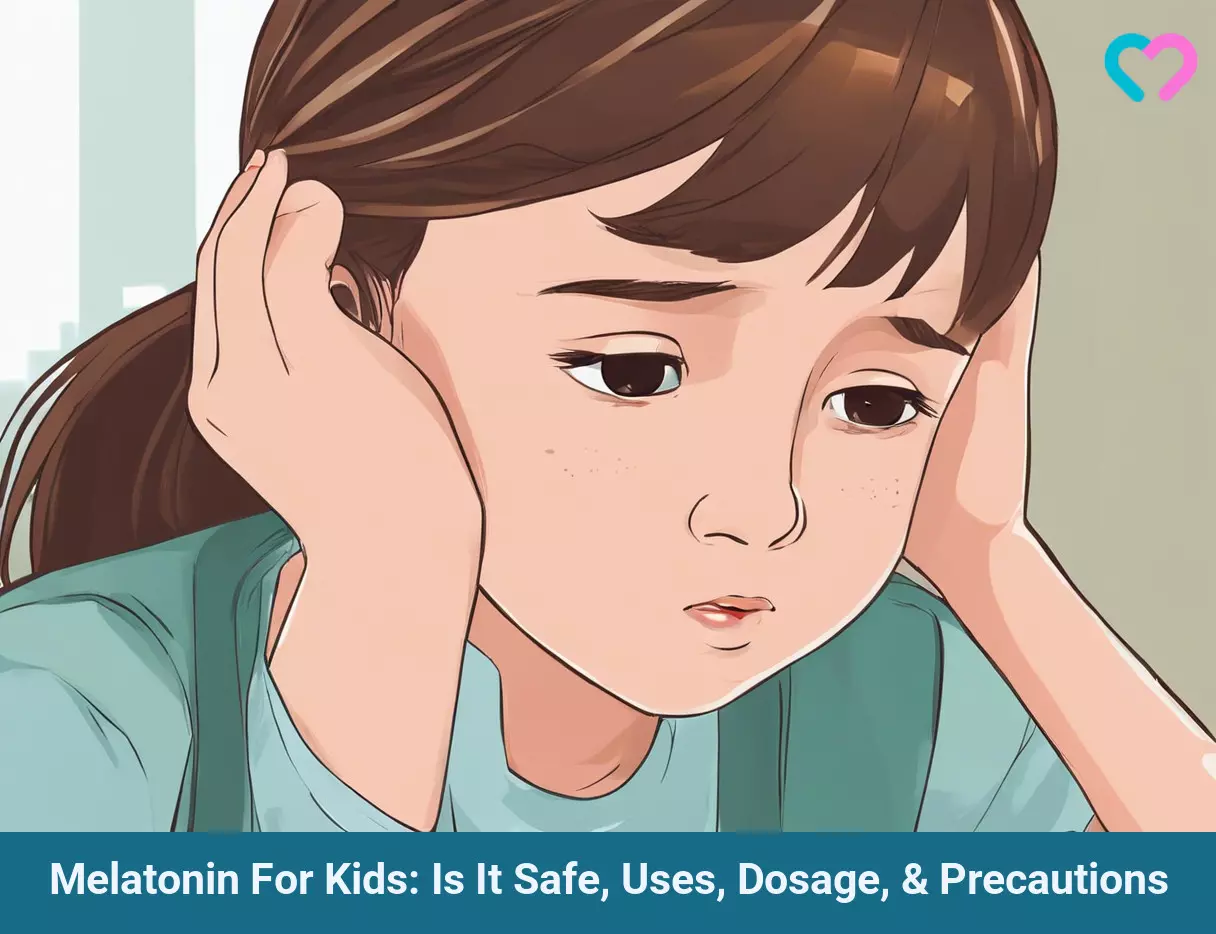
Image: Stable Diffusion/MomJunction Design Team
Know if melatonin is safe for your child. Learn about the recommended dose for kids and teens in this informative video. Get the facts to make an informed decision for your family.
Personal Experience: Source
MomJunction articles include first-hand experiences to provide you with better insights through real-life narratives. Here are the sources of personal accounts referenced in this article.
i. Weird thoughts and nightmares.http://www.caffeinatedautismmom.com/2011/12/weird-thoughts-and-nightmares.html
References
- Melatonin.
https://www.fda.gov/media/150006/download - Melatonin: What You Need To Know.
https://www.nccih.nih.gov/health/melatonin-what-you-need-to-know - Sylvie Tordjman et al.; (2017); Melatonin: Pharmacology Functions and Therapeutic Benefits.
https://www.ncbi.nlm.nih.gov/pmc/articles/PMC5405617/ - Melatonin and Children’s Sleep.
https://www.healthychildren.org/english/healthy-living/sleep/pages/melatonin-and-childrens-sleep.aspx - Five things to know about melatonin for kids.
https://answers.childrenshospital.org/melatonin-for-children/ - Melatonin.
https://www.mskcc.org/cancer-care/integrative-medicine/herbs/melatonin - Thinking about melatonin to help kids sleep? Ask your pediatrician.
https://publications.aap.org/aapnews/news/16325 - Xiao Meng et al.; (2017); Dietary Sources and Bioactivities of Melatonin.
https://www.mdpi.com/2072-6643/9/4/367 - Irvin Janjua and Ran D. Goldman; (2016); Sleep-related melatonin use in healthy children.
https://www.ncbi.nlm.nih.gov/pmc/articles/PMC4830653/ - Melatonin for kids: Is it effective? Is it safe?
https://answers.childrenshospital.org/melatonin-for-children/ - How long does melatonin last?
https://www.sleepfoundation.org/melatonin/how-long-does-melatonin-last - The truth about taking melatonin to help you sleep.
https://www.uhhospitals.org/blog/articles/2018/03/enter-sandman-the-truth-about-melatonin
Community Experiences
Join the conversation and become a part of our nurturing community! Share your stories, experiences, and insights to connect with fellow parents.
Read full bio of Dr. Shaon Mitra
Read full bio of Dr. Joyani Das
Read full bio of Dr. Ritika Shah
Read full bio of Vidya Tadapatri





